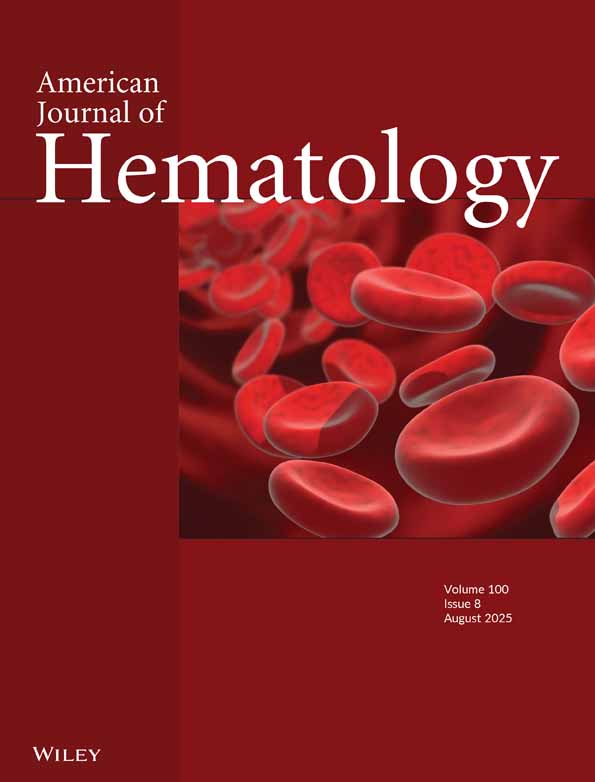Transfusion-dependency at presentation and its acquisition in the first year of diagnosis are both equally detrimental for survival in primary myelofibrosis—prognostic relevance is independent of IPSS or karyotype†
Conflict of interest: Nothing to report.
Abstract
The International Prognostic Scoring System (IPSS) and karyotype are useful tools for risk stratification in primary myelofibrosis (PMF). We examined the additional prognostic impact of red blood cell transfusion need among 254 consecutive patients (median age, 59 years). Sixty-two patients (∼24%) required transfusions at diagnosis whereas 22 (∼9%) became transfusion-dependent and 170 remained transfusion-independent during the first year postdiagnosis; after a median follow-up of 55 months, the respective median survivals were 35, 25, and 117 months (P < 0.01). Multivariable analysis confirmed the IPSS- and karyotype-independent prognostic weight of transfusion status. Among IPSS intermediate-1 risk patients, overall median survival of 82 months was modified to 60 or 118 months, based on presence or absence of transfusion need, respectively (P < 0.01). The corresponding figures for intermediate-2/high risk patients were 30 and 64 months (P < 0.01). Documented causes of death did not include iron overload. We conclude that transfusion status in PMF downgrades or upgrades prognosis within specific IPSS categories; transfusion need is a marker of aggressive disease biology in PMF, as it is in myelodysplastic syndromes. Am. J. Hematol., 2010. © 2009 Wiley-Liss, Inc.




